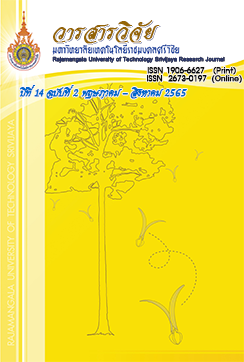Liquid Fuel Production from Polyethylene Plastic Waste by Pyrolysis Process
Keywords:
Polyethylene, Plastic, Pyrolysis, Gasoline oil, Diesel oilAbstract
Polyethylene is the most common plastics found in daily life. Its molecule is nothing more than a long chain of ethylene, two hydrogen atoms attached to each carbon atom, which can be changed to liquid fuel. The pyrolysis of plastics (polyethylene) to produce the fuel oil was investigated. The preliminary experiments were carried out in the range of temperature 300 to 600oC. The results showed that the suitable range of temperature for pyrolysis process of polyethylene was 385-425oC. Then, the influence of the parameters (temperature, reaction time and heating rate) on the pyrolysis was studied. The results indicated that the effect of reaction time was directly proportional to the yield of pyrolysis oil while the heating rate was inversely proportional. The maximum yield of pyrolysis oil (53.36%) was achieved under the optimum experiment conditions of temperature of 405oC, reaction time of 150 min and heating rate of 8oC/min. The heating value, viscosity and pH of pyrolysis oil were 43,438 kJ/kg, 2.014 cSt and 7.2, respectively. After that, the pyrolysis oil was distillated to purify and was separated to gasoline and diesel oil. The chemical composition of two fractions was similar to the commercial fuel oil. Therefore, plastic is an excellent feedstock for the production of fuel oil.
References
Budsaereechai, S., Hunt, A.J. and Ngernyen, Y. 2019. Catalytic pyrolysis of plastic waste for the production of liquid fuels for engines. RSC advances 9: 5844-5857.
Cahyono, M.S. and Styana, U.I.F. 2017. Influence of Heating Rate and Temperature on the Yield and Properties of Pyrolysis Oil Obtained from Waste Plastic Bag. Conserve: Journal of Energy and Environmental Studies 1(1): 1-8.
Dubdub, I. and Al-Yaari, M. 2020. Pyrolysis of Low Density Polyethylene: Kinetic Study Using TGA Data and ANN Prediction. Polymer 12(891): 1-14.
Kalargaris, I., Tian, G. and Gu, S. 2017. Combustion, Performance and Emission analysis of DI Diesel Engine using Plastic Pyrolysis Oil. Fuel Processing Technology 157: 108-115.
Khairil, Riayatsyah, T.M.I., Bahri, S., Sofyan, S.E., Jalaluddin, J., Kusumo, F., Silitonga, A.S., Padli, Y., Jihad, M. and Shamsuddin, A.H. 2020.Experimental Study on the Performance of an SI Engine Fueled by Waste Plastic Pyrolysis Oil-Gasoline Blends. Energies 13(4196): 1-15.
López, A., de Marco, I., Caballero, B.M., Laresgoiti, M.F. and Adrados, A. 2011. Influence of time and temperature on pyrolysis of plastic wastes in a semi-batch reactor. Chemical Engineering Journal 173(1): 62-71.
Muzarpar, S., Leman, A.M., Rahman, K.A. and Foudzi, M. T.R.M. 2020. Recycling of Plastic Throughout Pyrolysis and Distillation Process to Recover an Alternative Fuel Sources, pp. 1-9. In International Conference on Innovative Research - ICIR EUROINVENT 2020. IOP Conference Series: Materials Science and Engineering, Romanian.
Pollution Control Department. 2018. Waste Plastic Management 2018-2030. Available Source:http://www.pcd.go.th/Info_serv/File/Plastic%20Roadmap.pdf, June 30, 2020. (in Thai)
Pradipta, I.Z., Rochmadi and Purnomo, C.W. 2019. High Grade Liquid Fuel from Plastic Waste Pyrolysis Oil by Column Distillation, pp. 240-244. In 2019 IEEE Conference on Energy Conversion (CENCON). IEEE Power Electronics (PEL) Malaysia Chapter, Indonesia.
Quesada, L., Pérez, A., Godoy, V., Peula, F.J., Calero, M. and Blázquez, G. 2019. Optimization of the pyrolysis process of a plastic waste to obtain a liquid fuel using different mathematical models. Energy Conversion and Management 188: 19-26.
Shan-jun, M., Jun, Z., Dong, L. and Hong-yin, C. 2013. Study on Pyrolysis Characteristics of Cross-linked Polyethylene Material Cable. Procedia Engineering 52: 588-592.
Syamsiro, M., Saptoadi, H., Norsujianto, T., Noviasri, P., Cheng, S., Alimuddin, Z. and Yoshikawa, K. 2014. Fuel Oil Production from Municipal Plastic Wastes in Sequential Pyrolysis and Catalytic Reforming Reactors. Energy Procedia 47: 180-188.
Thahir, R., Altway, A., Juliastuti, S.R. and Susianto. 2019. Production of liquid fuel from plastic waste using integrated pyrolysis method with refinery distillation bubble cap plate column. Energy Reports 5: 70-77.
Tulashie, S.K., Boadu, E.K. and Dapaah, S. 2019. Plastic waste to fuel via pyrolysis: A key way to solving the severe plastic waste problem in Ghana. Thermal Science and Engineering Progress 11: 417-424.
Zattini, G., Leonardi, C., Mazzocchetti, L., Cavazzoni, M., Montanari, I., Tosi, C., Benelli, T. and Giorgini, L. 2017. Pyrolysis of Low-Density Polyethylene. Sustainable Design and Manufacturing 2017: 480-490.
Zhang, Y., Cui, Y., Liu, S., Fan, L., Zhou, N., Peng, P., Wang, Y., Guo, F., Min, M., Cheng, Y., Liu, Y., Lei, H., Chen, P., Li, B. and Ruan, R. 2020. Fast microwave-assisted pyrolysis of wastes for biofuels production - A review. Bioresource Technology 297: 122480.
Downloads
Published
How to Cite
Issue
Section
License
Copyright (c) 2022 Rajamangala University of Technology Srivijaya Research Journal

This work is licensed under a Creative Commons Attribution-NonCommercial-NoDerivatives 4.0 International License.
The content and information in the article published in Journal of Rajamangala University of Technology Srivijaya It is the opinion and responsibility of the author of the article. The editorial journals do not need to agree. Or share any responsibility.







